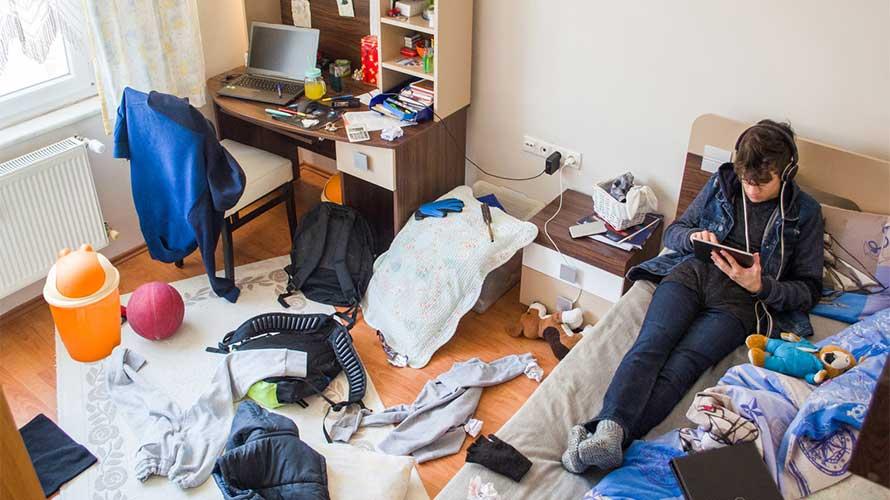We all know that cleaning your room isn't exactly the most thrilling activity, especially for kids and teenagers. But what many young people don't realize is that the consequences of a perpetually messy room can extend far beyond the confines of their bedrooms. In fact, a chaotic space can negatively impact their health, well-being, and even academic performance.Unhealthy Habits:
- Dust and Allergies: A messy room is a haven for dust mites, pollen, and other allergens. This can exacerbate existing allergies and asthma, leading to respiratory problems, itchy eyes, and even skin irritation. Kids and teens exposed to these allergens are more likely to experience headaches, fatigue, and difficulty concentrating.
- Pest Infestations: Clutter creates the perfect breeding ground for insects and rodents, who thrive on crumbs, leftover food, and other organic matter. These pests can carry diseases and contaminate food and surfaces, putting everyone in the household at risk.
Mental Stress:
- Anxiety and Stress: Living in a chaotic environment can be overwhelming and stressful, especially for children and teenagers struggling with emotional development. The constant visual clutter can trigger anxiety and make it difficult to relax and unwind.
- Decreased Productivity and Concentration: A messy room can be a major distraction, making it hard to focus on homework, hobbies, or creative pursuits. This can lead to decreased productivity, academic struggles, and a lack of motivation.
- Embarrassment and Isolation: Most kids and teens want to have friends over, but a messy room can make them feel embarrassed and hesitant to invite people into their space. This can lead to feelings of social isolation and loneliness.
- Loss of Privileges: Parents often use room cleanliness as a measure of responsibility and maturity. A consistently messy room can result in lost privileges, such as screen time, outings, or allowances.
- Start Small: The key to overcoming a messy room is taking small, manageable steps. Encourage kids and teenagers to start by cleaning up one area at a time, such as their desks or closets.
- Create a Routine: Establishing a regular cleaning routine can help keep the clutter at bay. Encourage kids and teens to devote 15-30 minutes each day or week to tidying up their rooms.
- Make it Fun: Cleaning doesn't have to be a chore. Turn on some music, light a scented candle, or invite a friend to help make the process more enjoyable.
- Reward Positive Behavior: Positive reinforcement can go a long way in motivating kids and teenagers to keep their rooms clean. Acknowledge and reward their efforts with praise, privileges, or small tokens of appreciation.
Additional Keywords: cleaning tips for kids, how to organize your room, benefits of a clean room, decluttering for teens, room makeover, children's health, teenagers and mental health, study tips for students, organizational skills, building habits

